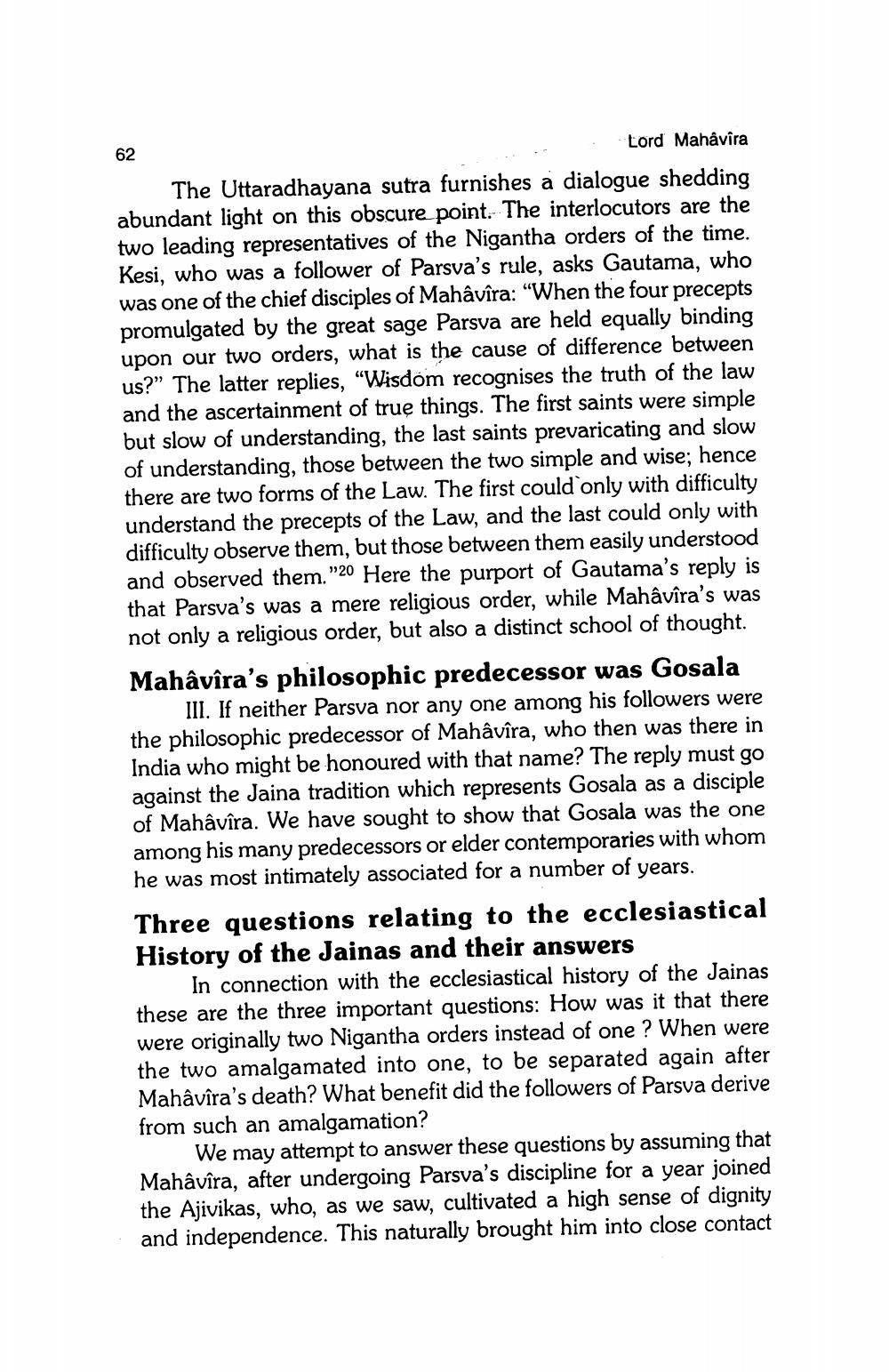________________
Lord Mahâvîra
The Uttaradhayana sutra furnishes a dialogue shedding abundant light on this obscure point. The interlocutors are the two leading representatives of the Nigantha orders of the time. Kesi, who was a follower of Parsva's rule, asks Gautama, who was one of the chief disciples of Mahâvîra: "When the four precepts promulgated by the great sage Parsva are held equally binding upon our two orders, what is the cause of difference between us?" The latter replies, "Wisdom recognises the truth of the law and the ascertainment of true things. The first saints were simple but slow of understanding, the last saints prevaricating and slow of understanding, those between the two simple and wise; hence there are two forms of the Law. The first could only with difficulty understand the precepts of the Law, and the last could only with difficulty observe them, but those between them easily understood and observed them. "20 Here the purport of Gautama's reply is that Parsva's was a mere religious order, while Mahâvîra's was not only a religious order, but also a distinct school of thought. Mahâvîra's philosophic predecessor was Gosala
III. If neither Parsva nor any one among his followers were the philosophic predecessor of Mahâvîra, who then was there in India who might be honoured with that name? The reply must go against the Jaina tradition which represents Gosala as a disciple of Mahâvîra. We have sought to show that Gosala was the one among his many predecessors or elder contemporaries with whom he was most intimately associated for a number of years. Three questions relating to the ecclesiastical History of the Jainas and their answers
In connection with the ecclesiastical history of the Jainas these are the three important questions: How was it that there were originally two Nigantha orders instead of one? When were the two amalgamated into one, to be separated again after Mahâvîra's death? What benefit did the followers of Parsva derive from such an amalgamation?
We may attempt to answer these questions by assuming that Mahâvîra, after undergoing Parsva's discipline for a year joined the Ajivikas, who, as we saw, cultivated a high sense of dignity and independence. This naturally brought him into close contact
62




